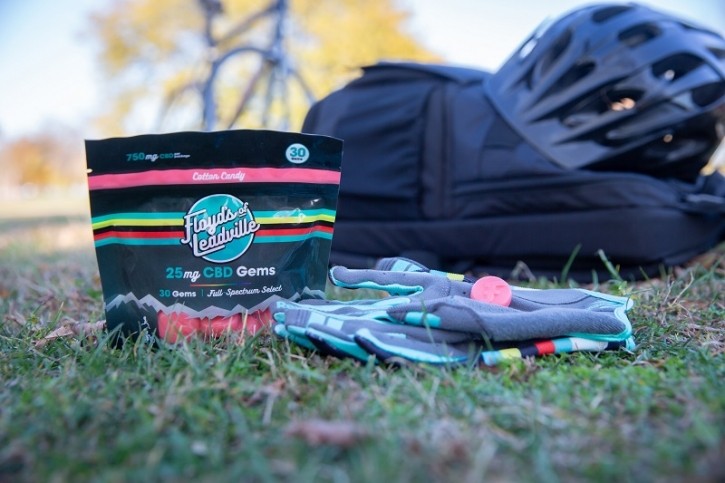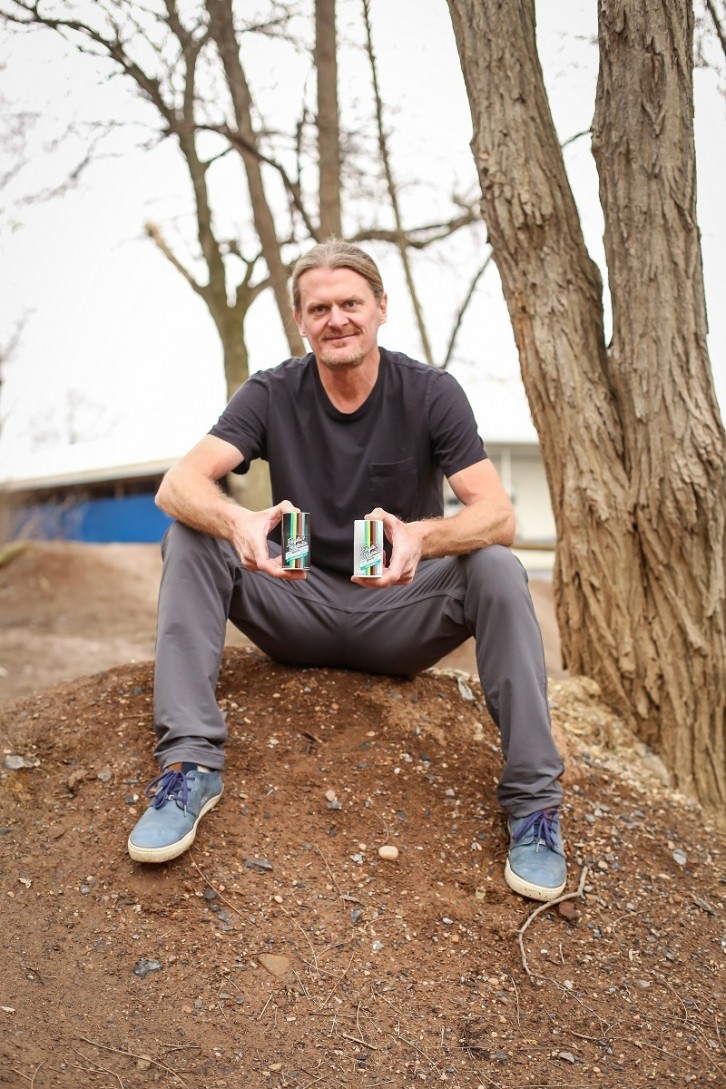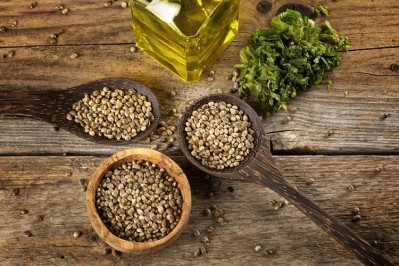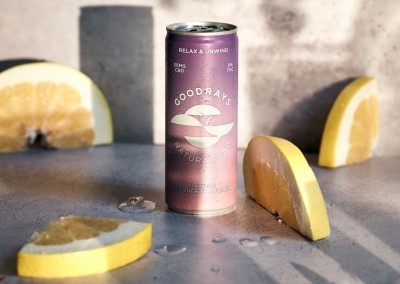‘The risk we have here is enough to manage’: Athlete turned entrepreneur Floyd Landis discusses how regulatory uncertainty threatens the global CBD industry

The American was infamously stripped of his 2006 Tour de France win after testing positive for performance-enhancing drugs. Disgrace, downfall and eventually redemption all ensued, and he went on to launch Floyd’s of Leadville in 2016, which sells CBD products such as gummies, coffee, drink mixes and tonics.
CBD is oil or powder derived from the cannabis plant that can be added as an ingredient in food and beverages. It doesn't contain tetrahydrocannabinol (THC), the psychoactive ingredient found in marijuana that produces a ‘high’. Landis discovered it after life as a professional athlete left him with ‘numerous lingering painful injuries’. CBD, he explained, allowed him a route away from opioids and other addictive drugs that in the past doctors were quick to prescribe. He then created Colorado-based Floyd’s of Leadville to share with the world his experience of the advantages of CBD.
"For me it's been beneficial for anxiety and to some extent pain as well,” he told FoodNavigator.
But the current lack of hard evidence to back up the many perceived health benefits is one bottleneck for the CBD industry. Studies continue to show it may prove to be an option for, among other things, managing anxiety, insomnia, inflammation, arthritis, and even HIV symptoms. But these studies are as yet inconclusive. With the exception of Epidiolex – the first and only prescription CBD medicine approved by the FDA in the US which is used to treat seizures – no medical claims can yet be made on any products.
High and dry
CBD’s regulatory status is similarly ambiguous. In the US, business owners like Landis complain of feeling in limbo thanks to a lack of clarity from the FDA. While the US Farm Bill made it clear that it was legal to grow and use CBD, there is still little guidance about how it can be marketed on product labels.
“Because of the way it's regulated here we're not allowed to make any medical claims,” Landis explained. “The FDA has put us in a weird grey area where you’re relatively restricted on what you can say. We can’t treat it as a medicine, and we can’t categorise it as nutritional supplement. They’ve been saying for years that they are going to clarify it, but they’ve just never addressed it. All we really do is list it as an ingredient in the product we are selling and use vague broad terms saying we recommend it for sleep, for example.”

It’s a similar situation this side of the pond. No CBD food product is allowed on the market unless authorised by EFSA, which also wants further clarification on the effect of CBD on liver, gastrointestinal tract, endocrine system, nervous system and on psychological function.
There are bigger problems in the UK, where a lack of legal clarity is preventing the FSA from granting Novel Food authorisations to CBD manufacturers, stalling businesses' operations and impeding innovation in the sector.
The ‘full spectrum verses isolate’ bottleneck
A big issue concerns whether the CBD in a product is ‘isolate’ or ‘full spectrum’. Isolate only contains CBD and is often found in crystal or powder form. The full spectrum version contains all cannabinoids and plant compounds other than THC. But very small traces of the psychoactive ingredient can remain. In the US and EU, FDA and EFSA regulations state that CBD products must contain no more than 0.3% trusted source dry-weight THC, which is insufficient for a person to feel ‘high’.
In the UK, there is no official legally acceptable limit for THC in CBD products, though the Misuse of Drugs Act states that 'no one component part of the product or preparation contains more than one milligram’ of THC.
Many firms therefore choose to only offer CBD isolate as the safest course. But according to Landis, “it seems that combination of THC and the other minor cannabinoid content in that oil together with higher amounts of CBD does have a higher efficacy rate for mood enhancement and things like that”. Floyd’s of Leadville therefore sells both full spectrum and isolate versions of its products, meaning two different labels for each product, another issue likely hindering scope for NPD.
Does CBD belong in food and beverages?
The very fact it is more closely tied to medicine than food is another factor limiting opportunities for product formulators to explore using CBD in a wider array of food and beverage applications. “It doesn't make sense to put CBD in a lot of food and beverage products,” Landis told us. "As much as we're not allowed to say this [because of the aforementioned regulatory confusion], people regard it as a medicine or to treat something. They are taking it to get some meaningful effect from it. So you can add it in a large dose without impacting the taste, but I think the main reason it's not in more food is because it’s perceived as a medicine.”
Case in point, Floyd’s of Leadville’s bestselling products are softgels, tinctures and balms. The company’s consumer base typically comprises forty and fifty-somethings looking to enjoy a pain-free healthy lifestyle. “Most are middle aged people dealing with the kind of aches and pains that come with not being young anymore,” Landis said. “You might not sleep as well and you're a little achy and it seems to be a useful supplement for managing the things that come with getting older. Our general customer base is people over 40 who live an active lifestyle and want to deal with the aches and pains they didn't use to have in their 20s or who do an endurance sport and want to keep doing it.”
Floyd’s of Leadville does offer drink mixes and tonics. CBD in a liquid form is an easy way to consume it, and combined with protein or electrolytes, it can provide the key components to bring you optimal results during your next activity, according to the company.
Floyd’s of Leadville’s has also introduced a CBD coffee. “Some people like the combination of the caffeine and CBD together,” Landis explained. “Some people can get jittery and shaky with the caffeine and the CBD can offset that.”
The CBD coffee is, incidentally, called ‘Stage 17’ – a very tongue in cheek reference, Landis admitted, to the notorious stage at the 2006 Tour de France where Landis performed a miraculous and spectacular, though drug-assisted, comeback.
But the current focus for Landis and CBD players in general is to ride upright through the regulatory uncertainties on both sides of the Atlantic. Asked if he plans to launch Floyd's of Leadville products in the UK or other parts of Europe he replied: “It's been a year since I looked at the [regulatory] status and I couldn’t get my head around what the actual lay of the land was, so we decided for now the risk we have here is enough to manage.”
As for the company’s plans in the US he revealed "a lot of it is waiting around for the regulatory stuff before we try and create too many things.”






























